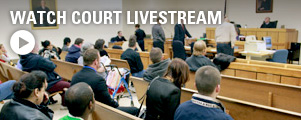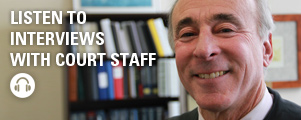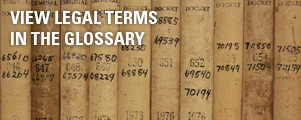OpenCourt Archive Footage and the Triple Murder Case
When we heard during Donald Rudolph’s November 14 arraignment on triple murder charges that the teenager had been to the court several times in the past few months, we went into our archives to see if we could find any of the cases.
We found archive footage for his 13-minute September 8 arraignment. (Other hearings were unavailable for various reasons: an April hearing occurred before our project started, a June 30 hearing was unavailable because of technical problems, and a September 14 hearing was held in a different courtroom than our camera’s placement in First Session.)
On Monday, November 14th, we posted the September arraignment in order to help flesh out the history of Donald Rudolph in the court, both for the sake of the public as well as the use of journalists.
On Tuesday, November 15th, the local FOX affiliate used OpenCourt video footage in an evening broadcast.
WGBH also used the footage in a November 16th segment for “Greater Boston,” about the teen’s troubling history of mental illness and whether the tragedy was a failure of the complex web of social services designed to mitigate society’s ills and administer justice, of which the court is a node.
Quincy District Court’s own Judge Mark Coven referenced this complexity in our interview with him last spring, as does Kevin Cullen of The Boston Globe in his November 15 column, “Paying in Tears.”
The potential uses of OpenCourt
Despite the fact that the the FOX 25 News report erroneously stated that we had granted them permission to use the footage (they had never asked) and that their coverage inaccurately stated that Judge Moriarty ordered Rudolph “released” on bail (she actually detained him on $1,000 cash bail until his next court date six days later), this incident has taught us about how OpenCourt can be used to deepen coverage of the courts.
Had our camera not been there, Donald Rudolph’s September 8 arraignment would not have have been readily available to shed light on his court history. A camera in every courtroom and well-archived footage – showing all cases, not just the extraordinary – would offer the public a less fragmented, more complete understanding of the workings of justice in our society.











